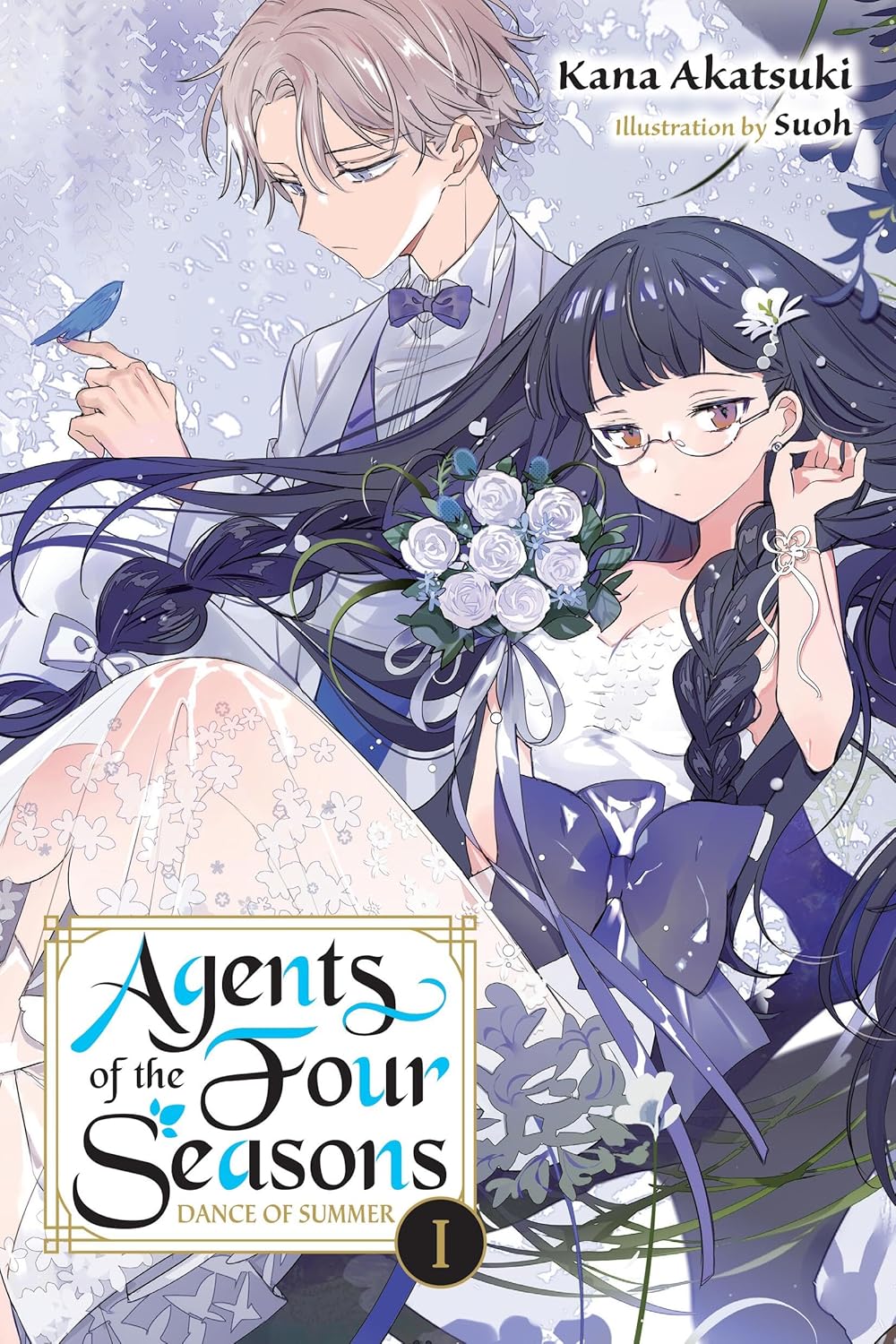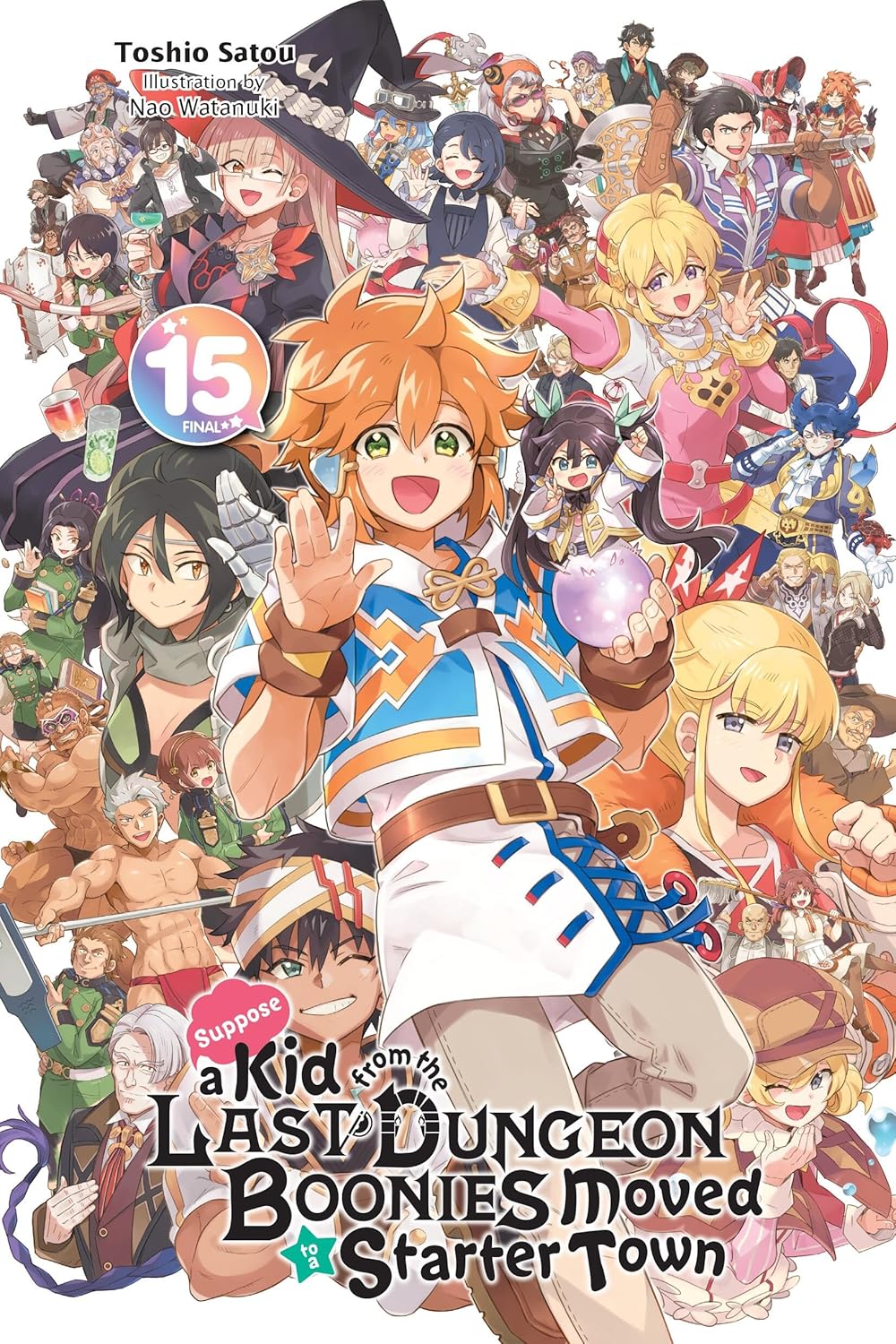By FUNA and Keisuke Motoe. Released in Japan as “Rōgo ni Sonaete Isekai de 8-Man-Mai no Kinka o Tamemasu” by K Lanove Books. Released in North America by Kodansha Books. Translated by Luke Hutton.
(A reminder that the English Vol. 5 is the equivalent of the Japanese Vol. 6.)
I feel at this point that I need to apologize to Mile and Kaoru. I’ve talked before about how all three FUNA heroines are basically agents of chaos who have large body counts to their names, which is true on the face of it. However, Mile (very much so) and Kaoru (somewhat) have people who are around them most of the time, who are there to hear the worst of their atrocities and talk them down. Mitsuha, on the other hand, spends a great deal of these books by herself, wandering all over the land with her teleport powers and with no one to stop her but a tween girl who usually would rather be joining her in the chaos instead. Mitsuha may whine about looking perpetually twelve, but she’s by far the least mature of the FUNA three, and will happily throw intruders on her property onto a remote island for the rest of their lives just because. She’s fricking terrifying.
There’s a new artist, though one that may be familiar – it’s the manga artist, now pulling double duty. As for the “plot”, as usual with this author it’s essentially whatever they feel like doing. Mitsuha manages to get herself a ship to repair/study by posing as a goddess and rescuing sailors from a wrecked ship… which she then has “ascend to heaven”. She gets another teenager to run another company selling luxury goods for her, though at least this one is not an orphan. And she continues to avoid the king and prince on this new nation, who are by now desperate to meet her, and continue to use their secret identities to try to corner her. This goes about as well as you’d expect. People that try to force Mitsuha to do what they want end up longing for a quick and painless death.
There’s minimal gunplay in this book, despite the cover art. But that’s fine, as Mitsuha has shown that she can completely upend all of society without needing to bother with guns. There are so many scenes in this book that come down to “roaring rampage of revenge”, and while with Mile, and especially Kaoru, such displays only really get out of hand when they’re upset or emotionally compromised, Mitsuha doesn’t really have that. Mitsuha spends most of the book happy, making jokes and puns, and laying economic waste to everything around her. She cares about some of the people around her, mostly Colette, but she’s also very casual about “if things go south I’ll just abandon them” when she makes new alliances. I don’t think this is intentional, but I think that the death of Mitsuha’s family has arrested her development and also her moral sense (her brother’s teachings didn’t help). If this was a different series, I’d say it’s a setup for a massive amount of hubris and karma bringing Mitsuha down. But this is not that kind of series. She’s just like that.
This is light, frothy fun provided you don’t take it remotely seriously. As always.



